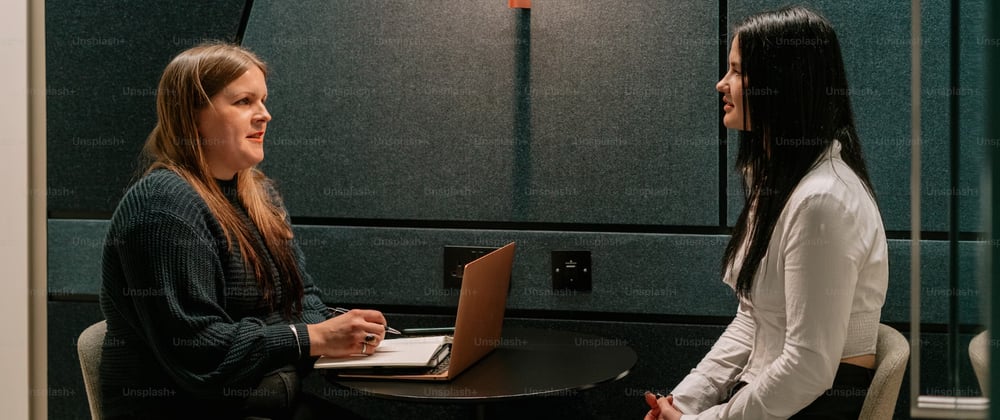Whenever I tell someone I love to interview I get responses that run the gamut.
Interviewing is a stress inducing nebulous process and the response tends to be that everyone dislikes having to do it. But me? I don't. I absolutely love it. So today I’m going to tell you why I love it and how maybe you can too.
In a normal non-technical interview (I go over the technical interview below) I would always prepare in a number of ways. I’d pull up my trusty Muse interview questions sheet and mock interview myself. I’d answer the question verbally as if someone had asked it of me, and I’d listen to myself as I answered. Did I sound confident, did I speak for too long, was I succinct while still portraying my personality?
And I practiced. Out loud. People are always surprised to learn that I am at heart a shy person. I used to write down what to say when I worked as a receptionist during college because getting on the phone felt like jumping off a cliff. I had to build the soft skills of speaking up and verbalizing my ideas. These days co-workers tend to think I’m an extrovert because at this point I’m so used to managing calls and meetings it comes naturally, however it isn’t. It’s a cultivated skill.
I practice to the point where it becomes second nature to verbally answer questions about myself. That way I can put all my energy into enjoying the interaction. If I’m going to work with the person interviewing me I want to see if the rapport we have is something I’ll enjoy day to day.
True story, I had someone ask me in an interview why I left one of my companies. And off the cuff I said, “Because I was bored.” He laughed. To this day, he’s still one of my favorite managers I’ve ever had.
While it’s not a cultivated skill, my second favorite part of an interview, after meeting the interviewer, is hearing about their products. I find the backstory of how companies are created fascinating. When I was a child my father worked at Hewlett Packard and I loved on ‘take your daughter to work’ day looking at the photo of Mr. Hewlett and Mr. Packard in front of the garage where they started their company.
What pushes a person to fill a gap, or create a product that changes someone else’s life? What went into getting the product off the ground? What does their product currently do, what do they want it to do, what else could they create with only a little more time and money? I absolutely love hearing about backstory and usually have to physically hold myself back from brainstorming product possibilities with the interviewer. Because I’m there to showcase the way I think and my skills, which is where the technical interview splits from the non-technical one.
Practicing for a technical interview is not as different from the above as you think. Day of I still go through my verbal interview questions, but these days I practice for months before the interview in Leetcode, CodeWars, or AlgoExpert. Although originally I completed interviews in JavaScript, I’ve since switched to Python as my main language. Every time I switch languages (I currently code in Assembly for school) I have to drop my ‘bad’ habits and re-remind myself of the differences in the new language. So I usually spend the week before the interview practicing in the language the interviewer prefers.
I fundamentally love logic problems, so I always endeavor to get to the point where I can talk shop with the interviewer about the language I chose, why I solved it the way I did, and the pros and cons of solving it that way. But in the interim I practice the layout of the technical interview style. When given a problem, I type out exactly what the interviewer says. From there I’ll ask questions about what I wrote down. Such as, “can I assume that…”, or “is it important if…”. Once I feel I’ve explored the boundaries of the given problem I let the interviewer know I’m going to take a moment and think about how to solve the problem.
Usually I’ll think of multiple ways to solve, so once I start to speak I type out my ideas and verbally walk through the options that came to mind and why I’m going to go with one method over another. Then I start pseudocoding what I’m going to code. I’ve found this helps me if I get nervous, or lost, or run into a logic issue because I can always go back to my original idea and recenter myself.
Coding while speaking is still one of the skills I’m actively working on and to cultivate it I have to practice. At the end of the day the reason I love interviewing is because I practice. I don’t worry about looking silly speaking through every problem or question. I prepare myself as best as I’m able and come to the interview enthusiastic.
All things equal, interviews are always wins in my book because I always learn something. They're fun because I think they're fun and I practice to ensure that I keep that mindset during the interview. Hopefully that helps change how you think about them, allowing you to love them just like I do.







Top comments (1)
It depends - and it seem that you have been quite lucky or chose the right companies or customers to interview with! Thanks for sharing your positive inspiration!
Developers and managers talk about a "broken hiring process" in our industry, possibly due to unrealistic expectations on both sides, unhelpful preparation tutorials, and HR departments stuffed with inexperienced people lacking technical knowledge and social skills. Here are some past DEV posts and discussions: